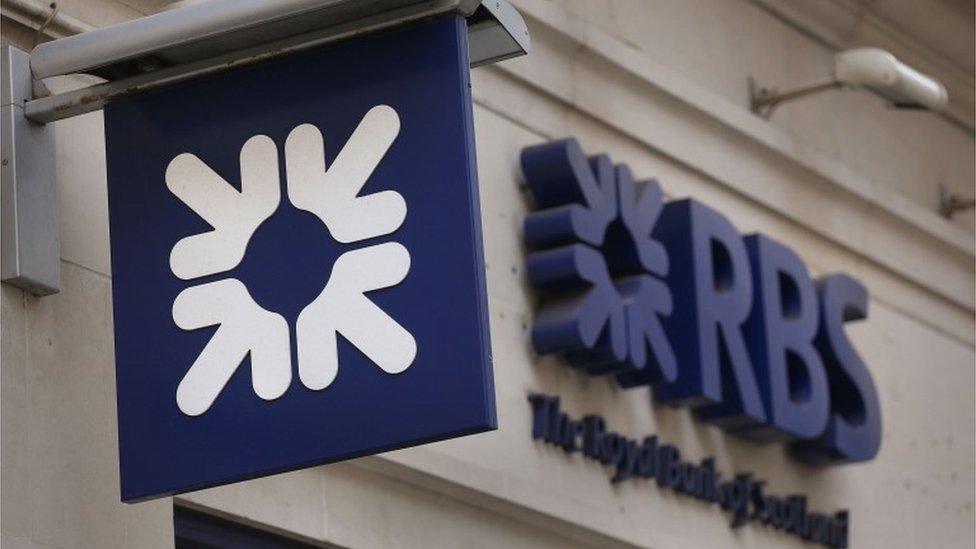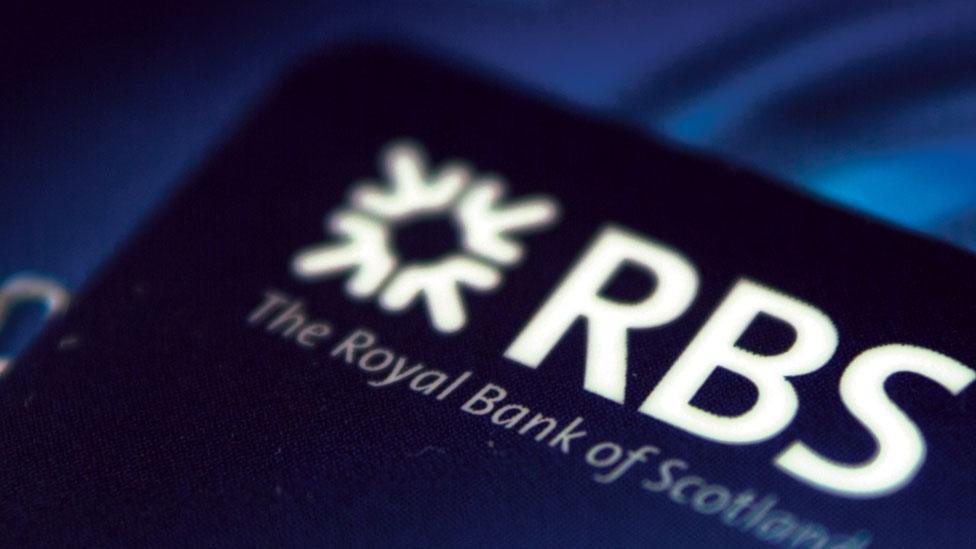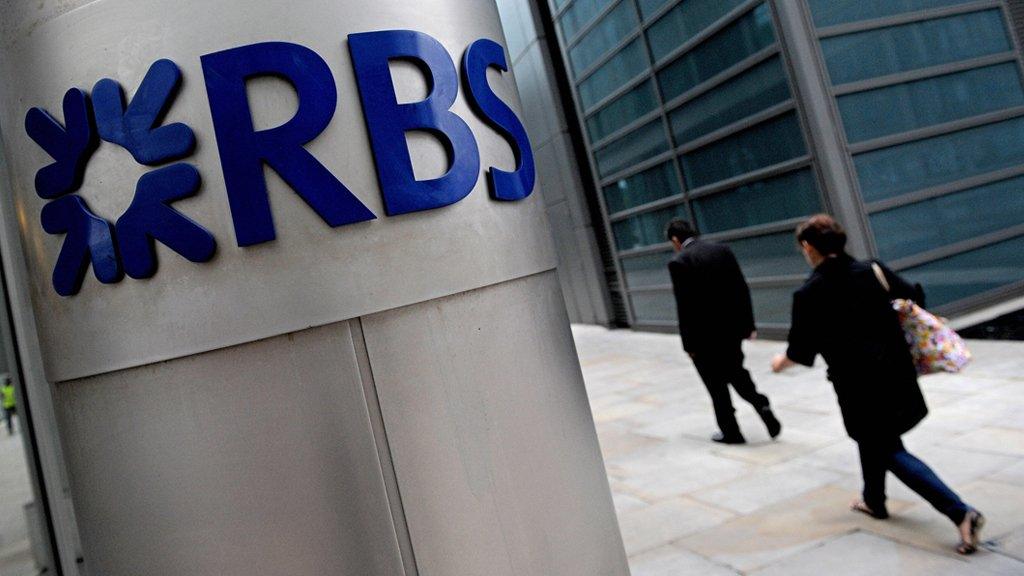Starting gun fired on RBS reprivatisation
- Published
- comments

The settling of the outstanding penalty for RBS' role in the financial crisis was the last obstacle standing in the way of selling the government's enormous 71% stake back to the private sector in what will be the biggest privatisation in UK history.
Its not often that a $4.9bn fine is actually good news but this fine is a LOT lower than many had feared.
RBS was the biggest bank in the world on some measures at the time the financial crisis hit and was very active in selling the risky mortgages that played such a destructive role in the meltdown.
Profits and dividends
The bank and its shareholders will be mighty relieved to settle this decade-long case with the US Department of Justice for a sum less than half the amount some of its investors were expecting to fork out.
The even better news for RBS is that it had already set aside $3.5bn to pay this and will only have to take an additional hit of $1.4bn - or just over £1bn. That's about three months' worth of profit, which means that RBS should make a full-year profit for only the second time in 10 years.
The bank has enough shock-absorbing capital to start paying some of those profits out in dividends, which will make the bank easier to sell back to the private sector, which is helpful as the government owns over £20bn worth of shares.
That is a colossal amount to sell and will take several years. The first sales will be at a loss, but the government will hope that over time, as the huge overhang of shares to sell dwindles and profits continue to rise, the public may get more money back.
The public though are unlikely to ever recoup the £45bn poured into the biggest banking debacle in UK corporate history.
- Published10 May 2018

- Published27 April 2018
